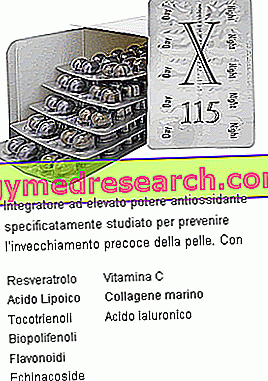
Scientific name
Alchemilla vulgaris L.
Family
RosaceaeOrigin
Alchemilla is a plant characteristic of mountainous places
Synonyms
Grass star or grass fan
Used Parts
Fresh or dried herbaceous partsChemical constituents
- Tannins;
- Flavonoids
Alchemilla in Herbalist: Property of Alchemilla
Alchemilla is exploited for its anti-inflammatory and disinfectant activity for topical use; it can therefore be used on skin and mucous membranes. It is used for example as a gynecological antiseptic for topical use; often, alchemilla extracts are also used for the preparation of products for oily skin and chapped or reddened skin parts. Buccal rinses and gargles can be helpful in mitigating the pain of teeth and sore throats, hoarseness and other mild inflammations.
Biological activity
As mentioned, different properties are attributed to the alchemilla, among which we remember those anti-inflammatory, disinfectant, antiseptic and antidiarrheal.
Although some of these activities have been confirmed by research carried out on the subject, the use of alchemilla has obtained official approval only for the treatment of diarrhea. This plant, in fact, thanks to its tannin content is able to exert an astringent and, indeed, antidiarrheal action.
Interesting studies conducted on animals have also highlighted the potential antitumor activity exerted by the alchemilla. In fact, it seems that the plant is able to inhibit tumor growth. More specifically, the aforementioned study showed that the administration of alchemilla in rats suffering from neoplastic diseases is able to significantly increase the life expectancy of the animals.
However, before being able to approve similar medical applications of the Alchemilla, numerous and more in-depth studies are needed, in such a way as to determine the real efficacy and the effective safety of use also on humans.
Alchemilla against diarrhea
Thanks to the astringent activity conferred by the tannins present inside it, the Alchemilla is a valid remedy in the treatment of minor non-specific diarrhea.
To treat this disorder, the Alchemilla can be taken internally as an infusion. Generally, it is recommended to prepare the product by immersing 2-4 grams of drug in 150 ml of boiling water, leaving it to infuse for at least ten minutes.
Alchemilla in folk medicine and homeopathy
In folk medicine, Alchemilla is used as an internal remedy for the treatment of gastrointestinal disorders, dysmenorrhea and disorders associated with menopause. Moreover, in this context, the Alchemilla is part of the composition of solutions for rinses and gargles to be used in case of inflammation of the mouth and throat.
Externally, however, traditional medicine uses alchemilla for the treatment of eczema, skin rash and ulcers.
Alchemilla is also used in the homeopathic field, where it can be found in the form of granules and mother tincture.
Homeopathic medicine uses this plant in case of leucorrhoea, dysmenorrhea, excessively abundant menstrual cycle, endometriosis, diarrhea, chronic diarrhea associated with liver disorders, enteritis and stomach spasms.
The amount of homeopathic remedy to be taken can vary greatly from individual to individual, also depending on the type of disorder that needs to be treated and depending on the type of preparation and homeopathic dilution that you want to use.
Contraindications
Ascertained hypersensitivity to one or more components.
Pharmacological Interactions
Prolonged intake of Alchemillia preparations may result in reduced drug absorption.



